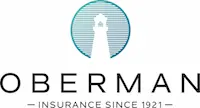Condo/Coop Unit Owner Alterations: Does The Contractor Need To Carry Coverage For New York Labor Law (Action Over Insurance)?
First, let’s just say if you don’t know what New York Labor Law (Action Over) liability is read here before reading this post.
So, the question being discussed is does Labor Law/Action Over liability apply to unit owner alterations. The short answer is explained in the following chart.
| Coop | Condo | |||
| Who Hired the Contractor? | Unit Owner Work | Building Work | Unit Owner Work | Building Work |
| Does New York Labor Law Apply? | Yes | Yes | Probably Not | Yes |
What makes Condo unit owner alterations so special?
A decision of the New York Court of Appeals Guryev v. Tomchinsky, __ N.Y.2d __ (Dec. 11, 2012), addressed this issue by distinguishing between cooperatives and condominiums.
New York’s Labor Law, §241 requires, generally, that “All contractors and owners and their agents, except owners of one and two family dwellings who contract for but do not direct or control the work, when constructing or demolishing buildings … shall comply with…[a lengthy list of work and work-site safety practices identified in the statute or promulgated by the Commissioner of Labor].”
In Guryev an employee of a contractor hired to perform alterations in a condominium unit owner’s apartment was injured during the performance of the work. While using a nail gun to install molding, a nail ricocheted and struck his eye. He did not have eye protection. He sued the unit owners, the condominium, the condominium’s board of managers, and the board’s managing agent for, among other things, violation of Labor Law §241 and regulations concerning eye protection.
The apartment alterations were contracted for by the unit owner and were being performed pursuant to an alteration agreement in which the condominium board retained the power to approve the alteration plans, require changes thereto, and enforce compliance with all applicable laws and regulations.
In a split decision, the Court of Appeals majority held that the condominium and board of managers are not liable under Labor Law §241 because each condominium unit is a separate parcel of real property and the condominium and board are neither the “owner” nor an agent of the owner of the unit, notwithstanding that the condominium “owned” the land under the building, managed the building and exerted control over the work in the unit by way of the alteration agreement.
The result should be the same in a cooperative, right? In both cooperatives and condominiums, apartment alterations are undertaken by the apartment owner pursuant to an alteration agreement with the board. But no. The majority opinion in Guryev notes and distinguishes other opinions holding cooperative corporations to be “owners” with liability under §241 to workers injured in the course of shareholder apartment alterations, because in a cooperative title to the building is held by the cooperative corporation and the shareholder is a proprietary lessee.
This reinforces the importance for cooperatives to use alteration agreements that require shareholders (a) to comply with all applicable laws and regulations in performing alterations, including Labor Law §241 and its regulations, (b) to indemnify the cooperative against all liability in connection with violation of such laws and regulations, and (c) to have adequate insurance coverage.
While the rule may change in the future, at present cooperatives may have liability under Labor Law §241 for injuries to workers engaged in apartment alterations, but condominiums do not.
Although the Guryev decision is favorable for condominiums, it should be viewed with caution. Its net effect is to deprive an injured construction worker of any remedy (other than the limited funds available under the Workers Compensation Law). For this reason, it would not be surprising to see future efforts to undermine this decision, including legislative steps to address the matter.
So, after all of that, how should a condominium deal with unit owner alterations? While technically unit owner alterations of a condo are exempt from New York Labor we suggest using best practices and require labor law coverage anyways. There is no reason to put the unit owner, the building and the property manager in a position of defending and paying out a claim when it could have been transferred to the contractor had they had proper insurance.
Derek Oberman
President – The Oberman Companies
